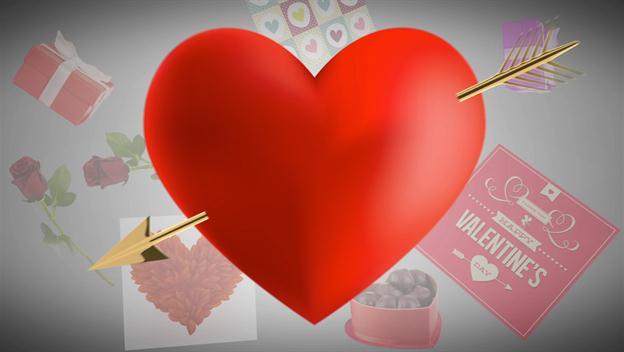Mysterious Origins Of Valentine’s Day
Valentine’s Day is a special day for guys and gals to show their love and affection toward each other and exchange chocolate, flowers and jewelry.
Background Behind Valentine’s Day
Before Christ’s birth, it was a Roman tradition for young men and women to meet every February to celebrate the feast of Lupercalia in honor of the god Lupercus. The feast was held from February 13 to 15.
The wine flowed and clothes was optional. The guys sacrificed a goat and a dog, then whipped ladies with the hides of the animals killed.
The women would actually line up for the men to hit them. The ladies believed it would make them fertile.
The festival included a matchmaking lottery. Young men drew the names of a woman from a jar.
The couple were then allowed to do anything they liked together for the remainder of the festival. With drunk, naked teenagers it doesn’t take too much imagination to know what these couples engaged in.
Once the Catholic church gained power and influence in the Roman Empire they wanted this licentious festival to end. They picked a substitute for Lupercalia.
Enter St. Valentine, a bishop believed to have been tortured and executed by Emperor Claudius II on February 14 in 270 A.D. for performing marriages after Claudius had outlawed them.
Claudius felt unmarried men made better soldiers – no wife and kids back home to worry about. This new symbol of “holy” love was reluctantly accepted by the Romans.
To make sure no one gave into temptation, the Catholic Church made it a mortal sin to worship Lupercus. Eventually, Valentine’s Day became a recognized holiday throughout Western Europe.
Today Valentine’s Day is celebrated in United States, Canada, Mexico, the United Kingdom, France, Australia, Denmark, Italy and Japan.
Be My Valentine Card
If teens couldn’t get together in February, what could they do? They could send each other respectful notes of affection.
While it was
As the influence of the Roman Catholic church grew, the practice of sending notes on February 14 spread with it. The first greeting cards appeared in the 18th century.
Printed cards were common in Germany by the 1780’s. They were called Freundschaftkarten or “friendship cards.”
The first American cards were manufactured in the 1870’s. Back then cards would cost up to $35 a card.
According to Hallmark, 141 million Valentine’s Day cards are exchanged annually. This makes Valentine’s Day the second-most popular greeting card giving occasion.
This total doesn’t include the packaged kids valentines used in school. Half of the U.S. population celebrates Valentine’s Day by sending a Valentine card.
Let Them Eat Chocolate
Chocolate is considered an aphrodisiac. It contains an endorphin called phenylethylamine. High brain levels of phenylethlamine are linked to falling in love.
Chocolate was used as a gift since the days of the Aztecs. They believed it to be a source of spiritual wisdom, energy and higher sexual prowess.
It was used as a nuptial aid and served at wedding ceremonies. 
Cadbury had improved their chocolate making technique resulting in many more of varieties of what was then called “eating chocolate.” Richard recognized a great marketing opportunity for the new chocolates and started selling them in beautifully decorated boxes he designed.
From that point, it was a quick jump to taking the familiar images of Cupids and roses and putting them on heart-shaped boxes. While Richard Cadbury didn’t patent the heart-shaped box, it’s widely believed he was the first to make one.
Cadbury marketed the boxes as having a dual purpose.
The boxes grew increasingly 
A Rose By Any Other Name
February 14 is like Black Friday for florists accounting for 32% of annual sales. How did flowers become associated with love?
In the early 1700s, Charles II of Sweden brought the Persian poetical art known as the “language of flowers” to Europe.
Throughout the 18th century, ladies loved their floral dictionaries which listed the symbolic meanings of different flowers. The red rose was believed to be the favorite flower of Venus, the Roman Goddess of Love.
It has come to represent romantic love. And so, giving red roses on Valentine’s Day became the thing to do.
Most of us would agree with George Eliot’s words, “I like not only to be loved, but also to be told I am loved.”
It is my hope you experience both on Valentine’s Day and every single day of the year.






